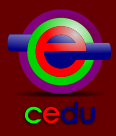MAPPING THE PRODUCTION OF KNOWLEDGE ABOUT THE BASIC EDUCATION MOVEMENT IN THE CAPES/MEC PERIODICALS PORTAL
Keywords:
Basic Education Movement, Radiofonic Schools, Knowledge Production, Capes PortalAbstract
The purpose of this bibliographic, exploratory and descriptive research is to present and discuss the main characteristics of the production of knowledge about the Movement of Basic Education (MEB) present in the portal of the Coordination for the Improvement of Higher Level Personnel (CAPES). Created by the National Conference of Brazilian Bishops (CNBB), the objective of this education program was to alphabetize youth and adults through radio schools from 1961 to 1966. In accordance with Romanowski and Ens (2006), we understand that research of the knowledge production type is not restricted simply to identifying the production on a theme, but to analyze it, categorize it and reveal its multiple aspects. Thus, we organized an advanced search of knowledge production about MEB in the CAPES/MEC Periodical Portal, without temporal filter, using, between quotation marks, the descriptor "basic education movement". In the search we obtained 35 productions that, after reading the titles, abstracts and keywords, we selected 12 articles for analysis. To the exclusion, we considered the criterion of thematic non-linking and repeated productions. We established 6 categories of thematic analysis: MEB and Catholic Action; MEB and Popular Culture; MEB and Rural World; MEB History and Functioning; MEB and Knowledge Production; MEB and Public Policies. We concluded that the production of knowledge about the MEB in the Capes Portal is characterized by publications in article format, concentrated from 1997 to 2019, and that the MEB, through radio schools in Brazil, promoted the valorization of man and the community through literacy as a transforming element.
Downloads
References
BEISIEGEL, Celso de Rui. Paulo Freire. Recife: Fundação Joaquim Nabuco, Editora Massangana, 2010. (Coleção Educadores).
BRANDÃO, Carlos Rodrigues. A Educação como cultura: Memórias dos Anos Sessenta. Horizontes antropológicos, v. 23, n. 49. Porto Alegre, Sept./ Dec. 2017.
CARLOMAGNO, Márcio C.; ROCHA, Leonardo Caetano da. Como Criar e Classificar Categorias para fazer Análise de Conteúdo: uma questão metodológica. Revista Eletrônica de Ciência Política, v. 7, n. 1, 2016.
CAVALCANTI, V. O. M.; MEDEIROS NETA, O. M. A Produção do Conhecimento sobre Educação Profissional: O Mapeamento dos Artigos Científicos no Portal de Periódicos da Capes. Revista Brasileira da Educação Profissional e Tecnológica, Natal, v. 2, n. 9, p. 1-11, 2015.
CAPES. Missão e objetivos: o Portal de Periódicos da Capes. [Brasília]; Disponível em:< https://www.periodicos.capes.gov.br/index.php?option=com_pcontent&view=pcontent&alias=missao-objetivos&Itemid=109>.Acesso em: 15 ago. 2020.
DEMO, Pedro. Pesquisa: Princípio Científico e Educativo. São Paulo: Cortez, 2011.
FÁVERO, Osmar. MEB – Movimento de Educação de Base primeiros tempos: 1961-1966. Encontro Luso-Brasileiro de História da Educação, Évora, Portugal, 2004.
GONZALEZ, Jeferson. Cultura, educação popular e transformação social nas formulações do MEB e do CPC (1961-1964). Jundiaí: Paco Editorial, 2011.
MARTINS, Jessica Souza; MEDEIROS NETA, Olivia Morais de; NASCIMENTO, Francinaide de Lima Silva. O Catálogo de Teses e Dissertações como fonte para estudos bibliométricos do campo da Educação Profissional. Research. Society and Development, v. 8, n. 8, 2019.
PAIVA, Marlúcia. Sociedade, educação e religião: o caso da ação educativa da Arquidiocese de Natal (1944-1964). Revista Educação em Questão, v. 7, n. 1/2, p. 107-123, 1997.
PAIVA, Marlúcia Menezes. A ação missionária da arquidiocese de Natal, Rio Grande do Norte (Brasil). Holos, v. 5, p. 3-12, 2016.
PAIVA, Vanilda Pereira. História da educação popular no Brasil: educação popular e educação de adultos. São Paulo: Edições Loyola, 2003.
PAULA, Rouseane da Silva. Uma proposta de educação permanente para a educação de jovens e adultos. Revista Iberoamericana de Educación, v. 44, n. 1, p. 4, 2007.
PEIXOTO FILHO, José. O rádio e a educação: A experiência do MEB e as contribuições para a educação popular. Do Meb à Web o rádio na Educação. Belo Horizonte: Autêntica Editora, Ed.1, 2010.
RODRIGUES, Manoel Ednaldo. Audição radiofônica em uma comunidade rural na Amazônia paraense. Revista Exitus, v. 9, n. 1, p. 340-366, 2019.
ROMANOWSKI, J. P.; ENS, R. T. As Pesquisas Denominadas do Tipo “Estado da Arte” em Educação. Diálogos Educacionais, v. 6, n. 6, p. 37–50, 2006.
SANTOS, L. N. N.; CARVALHO, M. E. G. Produção acadêmico-científica sobre o Movimento de Educação de Base (MEB): pequeno balanço e algumas perspectivas de pesquisa. Revista Espaço do Currículo, v. 8, n. 3, 25 jan. 2016.
SILVA, Francisco Tenória da. O esvaziamento educacional do Movimento de Educação de Base (MEB): uma abordagem discursiva. Research, Society and Development, v. 9, n.2, e22921929, 2020.
SOUZA, Alderlene Lima de; SILVA, Fabrício Valentim da. Origem, prática educativa e evolução do Movimento de Educação de Base (MEB) em Itacoatiara-AM. Revista Ibero-Americana de Estudos em Educação, v. 9, n. 1, p. 71-80, 2014.
SOUZA, Claudia Moraes. Vida e Trabalho no mundo rural: trabalhadores do Movimento de Educação de Base (1961-1964). Mundos do Trabalho, v. 2, n. 3, p. 281-306, 2010.
SOUZA, Claudia Moraes de. Uma escola para homem rural: a cultura popular, os camponeses e o movimento de educação de base (1960-1964). Educação e Pesquisa, São Paulo, v. 38, n. 2, p. 515-529, abr./jun. 2012.
VENTURA, Gláucia Conceição. Educação para a Cidadania via rádios comunitárias. Canadian Journal of Latin american and Caribbean studies, v. 32, n. 63, p. 167-183, 2007.
Published
How to Cite
Issue
Section
License
Copyright
The submission of originals to Cenas Educacionais (Educational Scenes - CEDU) implies the transfer, by the authors, of the publication rights. The copyright for the manuscripts published in this journal is the author(s), with CEDU rights over the first publication. Authors(s) may only use the same results in other publications by explicitly indicating CEDU as the means of the original publication.
Creative Commons License
Except where otherwise specified, the terms of a Creative Commons Attribution-ShareAlike 4.0 International License license apply to the material published in this journal, which allows unrestricted use, distribution and reproduction in any medium provided the original publication is correctly cited.






 This work is licensed with a License
This work is licensed with a License 